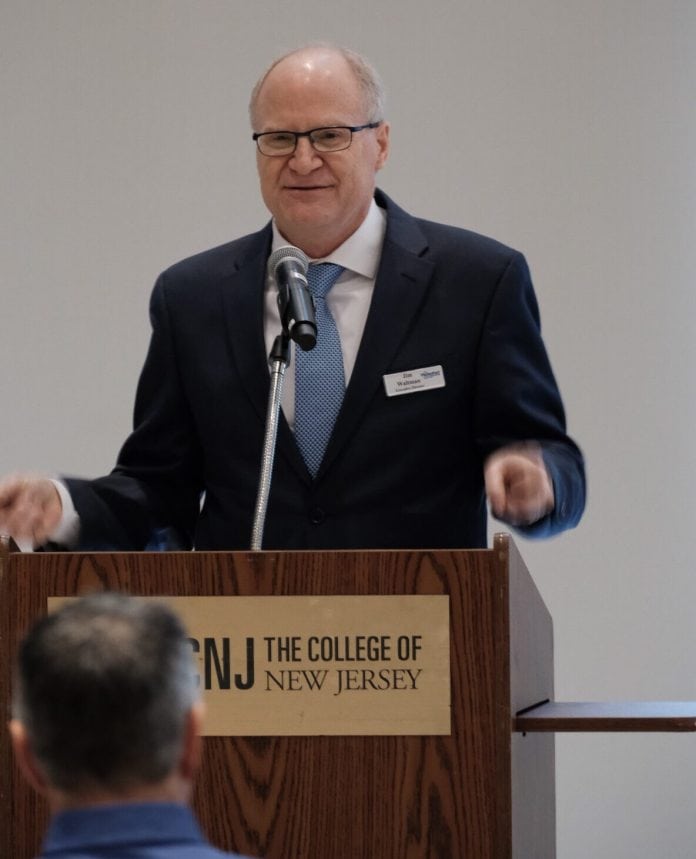
State leaders discussed critical issues facing New Jersey residents with a sold-out crowd as well as a synchronous online audience at the 7th Annual New Jersey Watershed Conference hosted by The Watershed Institute.
The annual New Jersey Watershed Conference took place on Feb. 23 with “an inspiring and distinguished group of speakers,” according to Watershed Institute Executive Director Jim Waltman.
“The theme of this year’s conference—Regional Collaboration for our Watersheds—is extremely timely,” he said. “The daunting threats that New Jersey faces from water pollution, flooding, and drought are most effectively addressed through collaboration and cooperation across municipal and county boundaries.”
Waltman noted that “as climate change exacerbates these threats, regional planning is more essential than ever.”
Keynote speaker Daniel Van Abs, State Sen. Bob Smith, and Commissioner of the New Jersey Department of Environmental Protection (NJDEP) Shawn LaTourette kicked off the day-long event.
The afternoon sessions included discussions of watershed planning, protection, and enhancement with leaders from the Environment Protection Agency, and case studies in MS4 permit implementation.
For a complete listing of all the sessions and distinguished speakers, visit the conference website https://thewatershed.org/7th-annual-watershed-conference/.
Addressing the catastrophic flooding and serious water quality issues that New Jersey faces will not be possible unless these challenges are addressed at a watershed scale, officials said.
This will require unprecedented coordination and cooperation across municipal and county boundaries.
The annual conference offered specific strategies, tools and lessons learned to inform the development of regional approaches in New Jersey.
“Regional planning is difficult because towns do not like to be told what to do in their own towns, but at the same time towns must act now to mitigate flooding,” Smith said.
“The climate change threat is no longer a threat – it is here. We have had record hot temperatures, and it is only getting hotter. One of the worst hurricane seasons is coming and we need to be ready.”
LaTourette added that “only through the thoughtful, holistic management of our watersheds can New Jerseyans ensure the cleanliness of our water supplies, reduce the worsening risks of flooding, and build resilience to climate change.”
“With the support of our forthcoming Resilient Environmental and Landscapes (REAL) regulatory reforms and a new Statewide Water Supply Plan, the Department of Environmental Protection will help our residents, businesses, and institutions meet this moment,” he said.
This year, The Watershed Institute marks 75 years since its founding as the Stony Brook Millstone Watershed Association in 1949.
Over the years, the Watershed has been proud to be part of the growth and development of New Jersey’s vibrant and successful conservation movement.
The strength of the field is reflected in the leaders from federal and state government, regional commissions, academia, nonprofits, and environmental consulting that participated at the conference.

